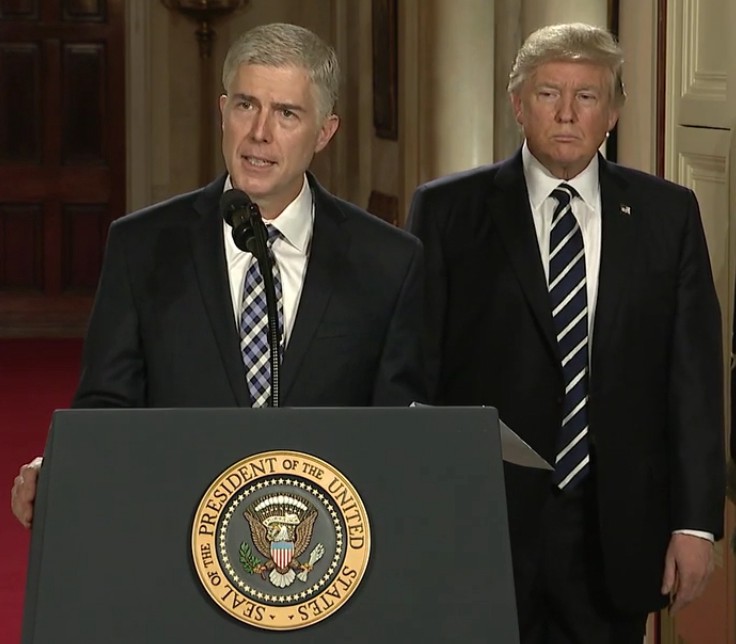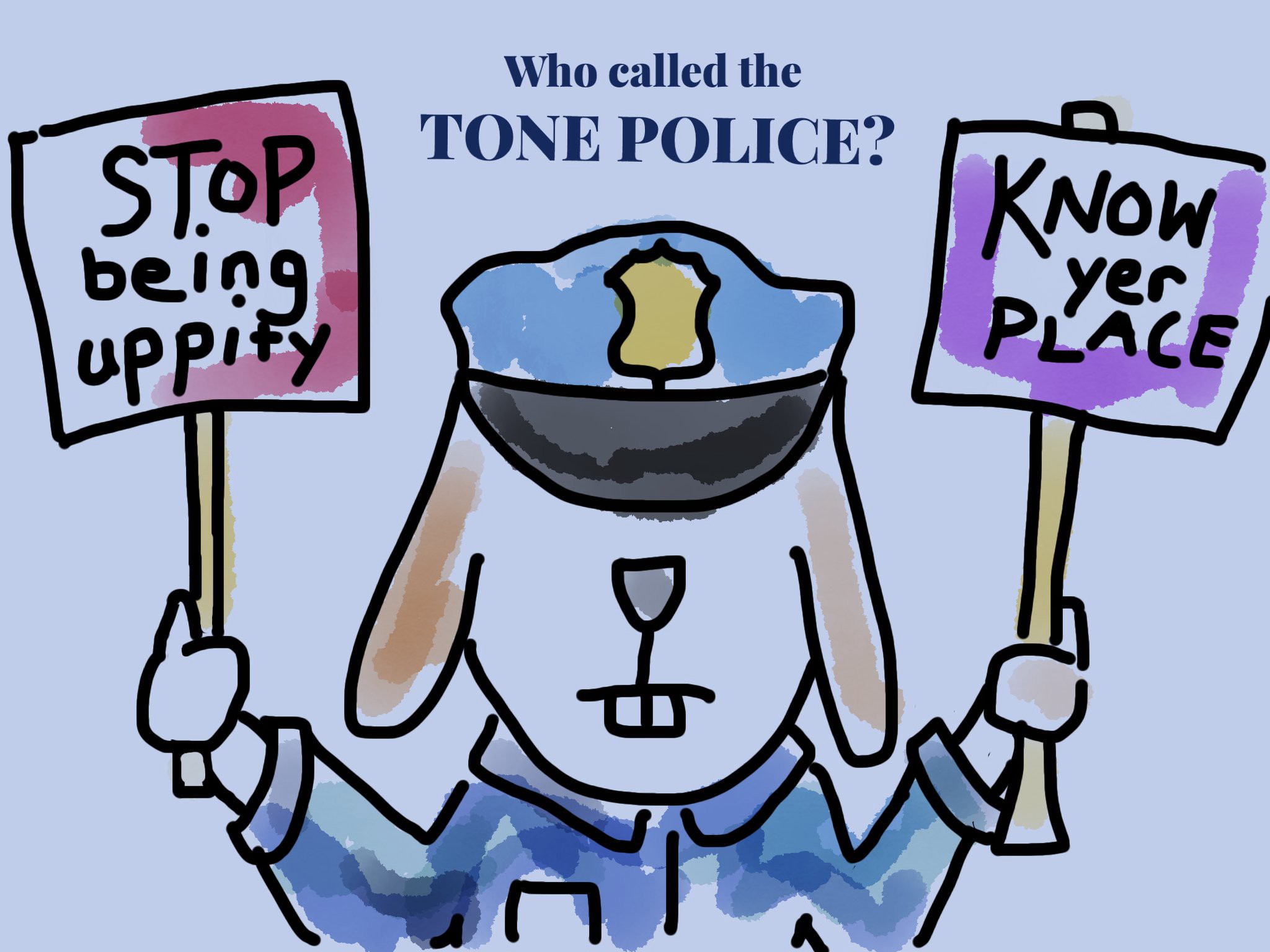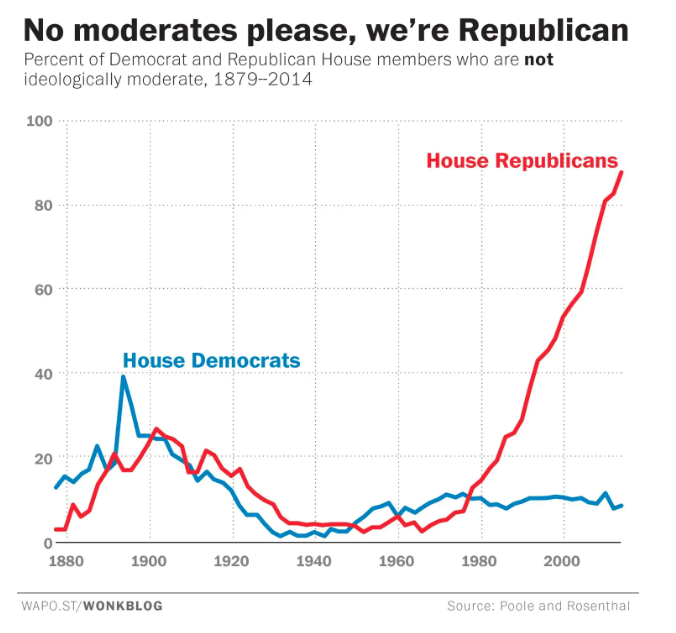Featured Stories
A Field Guide to Bad Faith Arguments
Once you recognize these weak tactics in your mentions, you can easily outwit them
Credit: JakeOlimb/DigitalVision Vectors/Getty Images
Listen to this story
–:–
–:–
Bad faith arguments are common in politics. And while they?ve always been part of political culture, they?re much more rampant on social media. It?s easy to fall prey to bad faith arguments and waste time engaging someone on points that obscure rather than shed light on how we?re all affected by policy and politics.
So with that in mind, here?s a field guide for spotting and responding to bad faith arguments and staying focused on the real-world issues that matter.
The hallmark of a bad-faith argument is that it disguises the core point of a debate rather than addressing issues, beliefs, and values head-on.
Bad faith arguments aren?t ?real? positions; they?re proxy positions people take for rhetorical purposes. In some cases, a bad faith position can be intentional. For instance, Sen. Mitch McConnell made up a ?Biden rule? to justify stealing a Supreme Court seat. Instead of arguing about the merits of refusing to hold a vote on President Barack Obama?s justice nominee Merrick Garland, McConnell made a proxy argument about Democrats being hypocrites for complaining about his power grab. And indeed, many Republicans and independents came to believe that the ?Biden rule? was real and that McConnell was simply playing hardball politics just like the Democrats.
 Supreme Court Justice Neil Gorsuch, owner of a stolen Supreme Court seat. Photo: The White House/YouTube via Wikimedia Commons/public domain
Supreme Court Justice Neil Gorsuch, owner of a stolen Supreme Court seat. Photo: The White House/YouTube via Wikimedia Commons/public domain
But most bad faith arguments aren?t from wily, professional politicians like McConnell. They simply come from a place of not wanting to confront the actual arguments someone else is making.
For instance, climate policy advocates point to scientific evidence that burning fossil fuels and increasing the amount of carbon dioxide in the atmosphere is causing seas to rise, more wildfires, and disruptions to rainfall patterns on which we rely. They argue these risks are severe enough to warrant dramatically reducing fossil fuel use and switching to clean energy.
But anti-climate-action groups will often say the science is not certain enough to justify action. Climate advocates will respond by citing more and more scientific evidence demonstrating climate risks. But there?s a problem: The advocates are responding to a bad faith argument because anti-climate action groups never say what level of scientific certainty would be necessary to justify climate policy.
Indeed, if you ask them to name the level of certainty they need or the type of evidence that would win them over, they?ll never do it. Although their argument is premised on the idea that more science could justify climate action, they can?t actually define a world where that?s true. Instead, they tend to oppose climate policy for ideological reasons?including an ideological commitment to exploiting fossil fuels?but they choose to fight policy in bad faith on scientific grounds.
Similarly, many anti-climate action groups have evolved from outright climate denial to acknowledging that climate change is real and a problem but say they?re against ?climate alarmism? and don?t believe in ?catastrophic global warming.? But what do these terms mean? Again, they never say. If I think business as usual means the Earth is going to warm 4 degrees Fahrenheit by the end of the century, am I an alarmist? How about 10 degrees?
Don?t waste time responding to these arguments on their own merits ? they have none.
Their actual operating definition is that ?catastrophic global warming? is the precise amount needed to justify policy action, and, by definition, we will always fall short of it. An alarmist, meanwhile, is anyone who says we need to act on climate change.
There?s an important distinction between types of bad faith arguments worth making here: Not all anti-climate action advocates are making these arguments intentionally. They?re not consciously thinking, ?I?m going to pretend to say one thing but really mean another.? Indeed, many sincerely believe that climate alarmism is terrible and must be combatted even though they have not bothered to form a coherent definition of what the term means.
In this case, these bad faith arguments are often best described as a form of ?agnotology,? a term historian Robert Proctor has popularized to describe the cultivation of ignorance. Proctor studied how tobacco companies spread doubt about the link between smoking and cancer. Rather than directly criticizing the science, they spread messages about uncertainty and doubt to cloud policymakers? judgment. They say maybe something else was causing the cancer? or maybe the scientific links were there but weren?t, uh, direct enough? or maybe people who are more likely to get cancer are actually more likely to smoke.
Agnotology?and the popularization of political ignorance?cuts across a variety of issues, not just scientific ones. Indeed, I?ve come to see it as the most common form of bad faith argument in political debates.
For instance, why are NFL players taking a knee? To protest police violence. They?ve been absolutely clear about this for years. But here?s Fox News telling its millions of viewers that no one knows why they?re protesting.
With that in mind, here are some other types of bad faith arguments we run into every day online and in public policy debates. Don?t waste time responding to these arguments on their own merits ? they have none. They exist to distract from core policy issues and the actual effect they have on our lives, our rights, and our planet.
The cartoon strawmanner
 Illustrations of bad faith argument ?cards? by David Wells (@MisterWells) on Twitter. And additional thanks to @bilald for the initial idea.
Illustrations of bad faith argument ?cards? by David Wells (@MisterWells) on Twitter. And additional thanks to @bilald for the initial idea.
The cartoon strawmanner has no need to ask you what you believe; he already knows. How does he know? Because he already has a number of counterarguments to your position. Not your actual position, of course, but the one that his favorite propaganda outlets have told him you have.
For instance, many scholars have pointed out that YouTube?s recommendation algorithm, which is optimized to push people to more and more intensive information about consumer products, has the unintended effect of pushing a minority of conservative viewers further and further down the rabbit hole to white nationalism. This is a problem because it seems to be playing a key role in helping a small but committed number of young white men to become violent reactionaries.
But conservative YouTubers and their defenders will often make two arguments in response to this:
- Not everyone who watches these videos becomes a Nazi. (No one is claiming that they are.)
- You can?t just call everyone a Nazi. (No one is doing this.)
These bad-faith arguments mean to distract from the core point, which is that bad actors are abusing YouTube?s platform to promote racist ideologies and encourage political violence.
We can have a debate about how these new platforms and the people who use them respond. Are companies like YouTube more like utilities or television stations in what they owe to their audiences? If there?s no such thing as a politically neutral algorithm, how should companies consider the political consequences of altering recommendation algorithms? What, if any, role should the government play in regulating social media platforms? Do conservatives whose videos get remixed by people even further to their right have a responsibility to take them down? Is debating a fascist ever useful, or does it merely mainstream their ideas?
But bad faith responses avoid these points entirely by cartoon strawmanning the people bringing them up instead. The best way to respond to these strawman arguments is simply to inform someone that no one is making that argument and point them to a book or long report to read (they will never read it).
Eventually, the cartoon strawmanner evolves, like a shitty, annoying Pokmon, to become the lie detector.
The lie detector
The lie detector knows what you really mean. After all, they already know what your position is. But when you say your actual beliefs are something else entirely, they have a choice ? accept that they have not accounted for the full spectrum of human belief about a topic or accuse you of lying.
The lie detector knows The Truth. Do not challenge the lie detector on any of these points: They know more about your beliefs, your life, and your work history than you ever will. You should ask the lie detector what you?re having for dinner this evening.
The freeze peach advocate
 Illustration by David Wells (@misterwells)
Illustration by David Wells (@misterwells)
The ?freeze peach? advocate is a fake free speech advocate. They confuse disagreement with silencing, delegitimization, and censorship. While they believe in ?free speech,? it turns out what that really means in practice is promoting their speech and the speech of people they agree with.
Jordan Peterson, who came to fame for picking an imaginary free speech fight over transgender pronouns in Canada, for instance, recently sued two professors for criticizing him and his views and even sued another university to boot.
Additionally, climate deniers might say they?re shut out of the debate because scientists won?t sit around discussing their ideas with them for hours and hours. But flat-Earthers are shut out of debates with geologists, too. The truth is that you don?t have to meet someone in an online or IRL structured debate to grapple with their arguments. Indeed, scientists have cataloged and numbered bad climate denial arguments for easy reference.
Further, free speech and platforming arguments are often used as proxies for actual arguments. ?These cowards won?t debate me!? is an easier sell than ?Let me tell you about why I think 200 years of science is wrong even though I can?t get my ideas published in a scientific journal.?
Freeze peach advocates think that they and their peers deserve a platform, but they never recognize that platform space is actually limited and contested. In fighting for airtime or seats at congressional hearings, they shut out other voices just as their voices can get shut out, too. The truth is that no one is entitled to a stage, a TV spot, or a book deal.
Or as Alex Pareene hilariously said in response to the New York Times covering another stop on the freeze peach college campus moral panic tour: ?If You Truly Care About Speech, You Will Invite Me to Your Office to Personally Call You a Dipshit.?
Even when supposed free speech and civil debate advocates go on to run their own platforms, they rarely talk to people to their left. Instead, free speech and fears of suppression are used as marketing tactics, not core moral values. That?s why you never hear them advocate for lefty protestors who are unjustly jailed, students who face expulsion penalties for their free speech, or government scientists who face routine censorship of their research.
 200 activists and several journalists were unfairly arrested as part of protests against Trump?s inauguration in 2017. A judge finally dropped charges in July of 2018. Not pictured: free speech defenders defending them. Photo: Mohammed Elshamy/Anadolu Agency/Getty Images
200 activists and several journalists were unfairly arrested as part of protests against Trump?s inauguration in 2017. A judge finally dropped charges in July of 2018. Not pictured: free speech defenders defending them. Photo: Mohammed Elshamy/Anadolu Agency/Getty Images
(As an aside, there are plenty of civil libertarian groups that do a ton of great work on actual free speech and academic freedom issues. When fake free speech advocates don?t show up to these fights, they show that they?re in it for their speech, not anyone else?s.)
The freeze peach advocate should be reminded that no one is entitled to a platform and no one is actually preventing them from speaking. More importantly, their attention should be refocused to the actual policy debates at hand.
The purity tester
The purity tester would like you to know that Al Gore uses airplanes (so troubling for an environmentalist!) and that Alexandria Ocasio Cortez wore a nice outfit for a photo shoot once (what kind of socialism is that?!). The purity tester isn?t here to tell you a policy agenda is wrong; they?re here to tell you those are bad spokespeople for their cause.
If Gore swore off flying, would the Koch brothers suddenly come to Jesus on climate policy? Nope. And if Ocasio Cortez pledged to only wear thrift store chic on the House floor, would people like Charlie Kirk finally accept the need for universal health care? No way.
These are goofy bad faith arguments that attempt to take the focus off policy and put it on advocates instead. They?re a form of concern trolling that should be dismissed out of hand, although asking the purity tester to name an advocate whose arguments they?d be willing to listen to can be amusing. It?s rare that they?ve ever considered the idea of a good advocate before, which demonstrates that it?s just agnotology at work.
The logic nerd
The logic nerd has a very clear argument. The argument has multiple parts, each of which is impeccable and internally consistent. The logic nerd has his facts straight, too, and has a number of counterarguments ready to deploy should you try to poke holes. In fact, the logic nerd has three rhetorical questions ready to go to expose your fallacious reasoning and will ask them, in turn, regardless of what you say or do.
I have some love for the logic nerd. If I had less empathy and less of a sense of just how much damage shitty public policy does to people, I too could have grown up to be a logic nerd, dear reader.
But I came to realize that politics isn?t a dispute over which facts are true or whether your logic is valid. It?s a dispute over which facts are the most relevant to a debate and what logic we should follow when setting and enforcing laws.
Responding to the logic nerd is a joy because if you fail to play along with their game, they will ad hominem the shit out of you.
For instance, a logic nerd would love to debate you about the pay gap: Are women really paid less than men? If so, by how much, and in which industries? But what about this industry where some women are paid more? Should we not examine the data? Okay, look at my data! Do you deny my data, sir? It is the best and only data! Sir, by your own logic?
What the logic nerd fails to realize is that equal pay laws give people the right to sue individual companies and institutions for pay discrimination. You can make all the societal-level arguments about the pay gap you want, but the actual law (and lawsuits) exist alongside that discussion, which is much closer to the reality that people live with every day when fighting discrimination.
Responding to the logic nerd is a joy because if you fail to play along with their game, they will ad hominem the shit out of you. Failure to answer rhetorical questions, even by pointing out why the questions are not relevant, will result in persistent sea-lioning.
There?s only one way to truly defeat the logic nerd. You must introduce him to the Fallacy Man. (Read the whole thing, please.)
The tone police and persuasion pundits
 Illustration by David Wells (@misterwells)
Illustration by David Wells (@misterwells)
When people have truly bad positions to defend, they often attempt to make a meta-argument about tone and persuasive power instead. This is endemic in Washington.
For instance, a Daily Caller editor went to a progressive rally and was shocked ? shocked ? to find that people there were angry about politics. Well, yeah, a lot of people who show up to political events are upset about something and want to change and fix it. But instead of responding to what they were upset about (sinking wages and crappy health care), the editor focused on their tone.
Not surprisingly, the same publication would never be shocked at right-wing anger, such as Tea Party rallies condemning Obama. That?s because their anger is always justified, but yours never is.
Similarly, conservatives will routinely criticize NFL players for how they?re protesting police brutality by kneeling during the national anthem. But they?ll never suggest an alternative means of protesting. No tone is the only tone they want to hear.
Meanwhile, many #NeverTrump conservatives are often trapped in persuasion punditry when they argue with liberals. ?Medicare for all? Don?t you know Midwesterners are skeptical of big government? That?s not gonna play well in Trump country,? they say.
When people are really making an argument about persuading someone, they actually try to persuade them. If not, it?s just more bad faith.
Well, that?s certainly an easier argument to make than saying millions of people should suffer from a lack of health care and that you?re fundamentally okay with that. But in removing themselves one layer from actual policy, pundits can appear savvy without actually committing themselves to a real position, even as they justify the status quo.
Bret Stephens, a conservative New York Times writer, wrote a column about how climate advocates should be more persuasive to him and other conservatives by not being so strident and certain about climate change being bad. But when another writer asked him which climate policies he might ever support, he couldn?t say. When people are really making an argument about persuading someone, they actually try to persuade them. If not, it?s just more bad faith.
The solution to tone policing and bad punditry is just focusing on the issues. If someone wants to keep distracting from that with what?s fundamentally a political tactics discussion, ask them to help get your preferred policy passed. If they say no, congrats: You?ve found their real position.
The both siderist
The both siderist is very reasonable. So reasonable, in fact, that people who care about politics actually look very unreasonable by comparison: Did you hear about the bad thing Republicans did? Well, Democrats did a bad thing too once, and it?s all quite unfortunate that everyone can?t be as reasonable as me.
Has the both siderist ever taken any actions to try to improve the political system? Well, it?s funny that you ask; no, they haven?t. What they have done is ask everyone, very nicely, to be civil and take it easy and not get too political with all that politics.
But in insisting on being the most reasonable person in the room, the both siderist has failed to read the room. Their postured reasonableness obscures the political realities we?re dealing with: rampant Republican gerrymandering, voter suppression, human rights abuses, and anti-democratic power grabs from people like McConnell and Trump.
 Nearly all the Republican moderates have been voted out of office. Redefining ?moderate? doesn?t make them more moderate, it just drags the debate to the right. Chart: The Washington Post
Nearly all the Republican moderates have been voted out of office. Redefining ?moderate? doesn?t make them more moderate, it just drags the debate to the right. Chart: The Washington Post
The both siderist has a lot of political opinions, but their most important opinion is that both sides are bad ? even if one side is doing objectively terrible shit to millions of people. It?s because the both siderist desperately wants to be off the hook for having to actually do anything to improve our political system. (The both siderist, coincidentally, also has a book to sell and needs to get on as many media outlets as possible to sell it. But they can?t afford to alienate anyone by being ? gasp ? partisan.)
As the Republican Party has gone off the rails in the Obama era, this has led to a deeper and deeper stretch of both siderism logic. For instance, Amy Chua, writing in The Atlantic about the decline of democracy, equates Trump threatening to revoke people?s citizenship and strip them of their voting rights with college students asking a university to stop venerating a slave-owning Founding Father. But one of these fundamentally alters the realities of American political life for decades; the other is a campus debate over a statue.
The committed both siderist must never admit that one party or one side in a debate is worse than the other. If they did, they might have to do something about it.
Debating in good faith
It?s worth remembering that the people who respond to you online are usually less than 1 percent of 1 percent, and the reason they?re writing is that they virulently disagree. In the broader public sphere, it would be good to see fact-checkers, pundits, magazine editors, and TV hosts actually try to pin people down on real positions.
As Matt Bruenig has noted, political debates often function in two different universes. There?s a ?take universe? with columns, opinion pieces, and think tank reports. Some of them are hot takes. Others are lukewarm, and if you dig into them, they?re just the same circle of people citing themselves as the source of The Truth on a given topic. Then there?s the real universe of actual data, actual outcomes for people and actual structures of power in society. In Bruenig?s case, he introduces hard data about public ownership of industries and worker control over businesses into fuzzy ideologically rigid ?take universe? debates about capital, labor, and socialism.
I?ve loved working with scientists because reality is real and scientists are responsive to it. The political class should be too. We?re drifting further from that precisely because conservative authoritarians attack sources of information that help us see reality: an independent press, science and academia, and public employees who work for all of us. They cultivate ignorance as surely as the tobacco companies did. It?s the only way they can hold onto power.
They exploit the proliferation of online media to make the world too hard to understand. They make agnotology a certainty to obscure obvious realities like the fact that countries with universal health care have better health outcomes and the obvious ethical argument that no one has to die from lack of medical care in the richest country on Earth.
Some of the best writing on arguments deals with the overwhelming amount of bullshit and uninformative information available in the modern media system. Neil Postman, the author of Amusing Ourselves to Death, argued in his later books that we must become ?loving resistance fighters? who focus on our lived reality and core humanist values rather than media representations that can never truly stand in for our world.
Even though I work in communications and media, I?ve tried to live up to that. I go to organizing meetings. I canvass and knock on doors. I show up for protests and direct actions. I?m a member of two unions. This stuff matters; real people matter. The real consequences of policy are life and death for millions of us.
So we should focus on that relentlessly and never get distracted by bullshit, bad faith arguments.
7.8K
58
- Politics
- Media
- Science
- Environment
- Social Media
7.8Kclaps
7.8Kclaps
58 responses

Protect Refugee Resettlement Policies
Truman Project in Truman Doctrine Blog
Economic protectionism and the tyranny of taxation with representation
Katherine Emily
Repealing the Death Penalty in New Hampshire Is Personal
ACLU National in ACLU
Education and the Presidents
Steve Russell
From Consensus to Utopia
Rowan Fortune (RTE)
What?s The Real Story With Rod Rosenstein?
m2c4 in Dialogue & Discourse
Without a Clear Strategy for Labor, Socialists are Falling Behind Workers
Ryan Mosgrove

